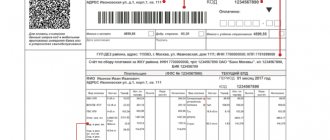Taxation of gifts received from organizations
In accordance with paragraph 2 of Art. 572 of the Civil Code of the Russian Federation, a gift is recognized as a thing or property right transferred free of charge into the ownership of an individual. The donor side may include organizations and individual entrepreneurs who can give gifts, for example, to their employees, clients and potential buyers.
Moreover, in a number of cases, giving gifts entails the obligations of a tax agent for personal income tax and the need to pay tax on the value of the gift given.
According to the law, when determining the tax base for personal income tax, all income of an individual received by him both in cash and in kind, as well as income in the form of material benefits, are taken into account.
Income is recognized as an economic benefit in monetary or in-kind form, taken into account if it is possible to evaluate it and to the extent that such benefit can be assessed (Article 41 of the Tax Code of the Russian Federation). Gifts in this sense are no exception.
However, not all gifts are subject to personal income tax. Thus, gifts received to individuals from organizations and individual entrepreneurs whose value does not exceed 4,000 rubles are not taxed (clause 28 of article 217 of the Tax Code of the Russian Federation). Personal income tax is not paid on such gifts.
In this case, the value of a gift in an amount exceeding the established limit of 4,000 rubles is subject to taxation in accordance with the generally established procedure. That is, if an organization gives an individual more than 4,000 rubles, then the excess amount must be calculated and paid to the personal income tax budget.
Moreover, the threshold value of 4,000 rubles is considered for the tax period, that is, for the whole year. This means that souvenirs worth up to 4,000 rubles, one-time gifts to clients or potential buyers, are not taxed. When giving such gifts, the organization does not have the obligation to calculate, withhold and pay personal income tax.
If an organization gives an employee 2,000 rubles, say, by March 8, and on New Year’s Day (the same year) gives her another 4,000 rubles, then personal income tax on the gifts received will have to be paid in this case.
But the tax of 13% will not be calculated on the total amount of gifts (2,000 + 4,000), but on the amount that exceeds 4,000 rubles. In other words, in this case, the donor organization will have to pay personal income tax to the budget in the amount of 260 rubles (2,000 x 13%).
Challenging a gift agreement for a nephew
Family ties do not play a role in the possibility of challenging - the DD is canceled by the court if there are compelling reasons:
- mistreatment of the gift by the recipient, if this leads to its irretrievable damage or loss;
- an attempt on the health and life of the donor by the donee;
- signing of a DD by the donor while under the influence of alcohol or drugs;
- execution of a transaction under the influence of misconception, illegal actions of the donee or a third party.
The donor's creditors have the right to cancel the deed of gift if the gift was purchased with funds from business activities, and the deed of gift for it was drawn up within six months after the bankruptcy decision entered into legal force.
If the donor dies due to the fault of the donee, the latter becomes subject to criminal liability, and the heirs can return the gift by presenting a final verdict.
Payment of taxes on gifts from organizations
The tax payment deadline is no later than the day following the day of delivery of the gift in cash.
But if a gift worth more than 4,000 rubles is given by an organization in kind (for example, in the form of souvenirs, jewelry, expensive bouquets, etc.), the tax must be withheld on the day of payment of the next salary (clause 4 of article 226 of the Tax Code of the Russian Federation) .
If for some reason the organization was unable to withhold and transfer personal income tax on the value of the gift over 4,000 rubles, then the income thus received is declared and paid by the personal income tax by the recipient himself, and not by the donor organization.
This is possible, in particular, in cases where an organization gave an expensive gift to an individual, but subsequently did not make any payments (salaries, bonuses, etc.) in his favor during the tax period.
In such situations, the organization will have to notify the Federal Tax Service and the taxpayer in writing about the impossibility of withholding personal income tax and the amount of tax payable on the gift given.
To do this, a 2-NDFL certificate with attribute 2 is sent to the Federal Tax Service Inspectorate and the individual. The deadline for sending such a certificate is no later than March 1 of the year following the expired tax period in which the relevant circumstances arose (clause 5 of Article 226 of the Tax Code of the Russian Federation).
If, before the end of the tax period, the organization nevertheless pays the taxpayer any money, it will be obliged to withhold tax from it, taking into account amounts not previously withheld. After the end of the tax period and a written notification of the impossibility of withholding personal income tax, the obligation to pay is assigned to the individual (letter of the Federal Tax Service dated August 22, 2014 No. SA-4-7/16692).
That is, by sending a 2-NDFL certificate with sign 2, the organization is relieved of the duties of a tax agent in terms of withholding and paying personal income tax on a gift given to an individual. Personal income tax will be paid by the taxpayer who received the gift, based on the notification sent to him by the Federal Tax Service. In this case, the individual will have to pay personal income tax no later than July 15 of the year that follows the year the gift was received (clause 4 of article 228 of the Tax Code of the Russian Federation).
Is it possible to draw up a deed of gift from an aunt to a nephew?
Every citizen has the right to dispose of his property independently and give it to anyone, incl. and nephews. The gift agreement (hereinafter referred to as the DD) is concluded free of charge; two parties participate in the transaction - the donor and the donee. It is prohibited to demand counter-presentation of money or services in exchange for a gift: in such transactions other norms of the Civil Code of the Russian Federation apply.
Donation is regulated by Ch. 32 of the Civil Code of the Russian Federation, and it is important to take into account several subtleties:
- The donor may be an adult capable person. Registration of a DD on behalf of a minor or incapacitated person is prohibited by Art. 575 of the Civil Code of the Russian Federation.
- The donor undertakes to transfer, and the donee – to accept, the gift within the established time frame.
- Based on Art. 577 of the Civil Code of the Russian Federation, the donor has the right to refuse to fulfill the transaction if, after the execution of the contract of promise of gift, his property or financial situation has changed for the worse.
Important! If the nephew is under 18 years old, the donation is made with the consent of his parents, but he signs the DD independently. For children under 14 years of age, signatures are provided by legal representatives.
Form of gift agreement for nephew
The form of the DD is regulated by Art. 574 Civil Code of the Russian Federation. A written agreement is required if real estate is given by the donor of a gift worth more than 3,000 rubles. acts as a legal entity, or an agreement is concluded promising a gift in the future - on a specific date or upon the occurrence of a certain event: the wedding of the donee’s nephew, graduation, etc.
Legal advice: regardless of the type of gift, it is better to always formalize the deed of gift in writing. If necessary, the document will confirm the fact of the transaction and reduce the chances of challenge by third parties.
Accounting for gifts as expenses
If tax authorities treat the very fact of giving gifts by organizations leniently, since the law does not prohibit such donations, then with the possibility of taking into account the cost of gifts in the expenses of the organization, everything is much more complicated.
The fact is that, in accordance with the current rules, expenses for profit tax purposes are recognized as justified (economically justified) and documented expenses incurred to carry out activities aimed at generating income (Article 252 of the Tax Code of the Russian Federation).
At the same time, the Tax Code of the Russian Federation directly establishes a rule according to which, when determining the tax base for corporate income tax, expenses in the form of gratuitously transferred property and expenses associated with such transfer cannot be taken into account (Clause 16, Article 270 of the Tax Code of the Russian Federation).
Since the giving of gifts is precisely a gratuitous transfer of property, from the position of the inspectors, the costs of purchasing these gifts cannot be included in the tax base for corporate income tax (letter of the Ministry of Finance dated September 18, 2017 No. 03-03-06/1/59819). Moreover, this rule is true not only for OSNO, but also for the simplified tax system.
However, an organization can still, at its own peril and risk, classify gift costs as hospitality, advertising and labor costs. In this case, expenses for gifts must be properly confirmed and justified.
For example, an organization for advertising purposes can present branded souvenirs to its clients, potential buyers and partners.
In order to take into account the cost of such products as part of advertising expenses, the organization must have not only primary documents for the purchase of such products, but also a document confirming that these products were used specifically as part of the advertising event (letter of the Federal Tax Service dated 05/08/2014 No. GD-4- 3/8852).
That is, the organization must prove that the donated souvenirs are given to potential buyers and partners for a reason, namely with the aim of increasing the customer base and, as a result, generating income.
As for gifts given to employees, in order to reduce taxable profit, they must be directly related to the production activities of the employees, and even better, be an integral part of wages.
Moreover, such gifts as incentive payments must be specified in local regulations or in the regulations on bonuses (resolution of the Arbitration Court of the Ural District dated December 17, 2014 No. A50-2698/2014).
But in any case, the organization must be prepared for the fact that it will have to defend its case in court, since tax authorities, as a rule, do not consider the costs of gifts to be economically justified expenses.
If an organization wants to avoid possible additional taxes and litigation with tax authorities, then the presentation of gifts should be made at the expense of net profit. That is, after paying tax and without taking into account the cost of gifts as expenses.
Arbitrage practice
Challenging a gift agreement is an extremely complex procedure that requires extensive experience and legal knowledge.
Not all donors succeed in returning donated property, but there are real decisions in which the courts declared DD invalid and returned valuables to the former owners:
- Decision No. 2-1146/2019 2-1146/2019~M-654/2019 M-654/2019 dated July 30, 2021 in case No. 2-1146/2019;
- Decision No. 2-1851/2019 2-1851/2019~M-1711/2019 M-1711/2019 dated July 17, 2021 in case No. 2-1851/2019;
- Decision No. 2-55/2019 2-55/2019(2-775/2018;)~M-675/2018 2-775/2018 M-675/2018 dated June 17, 2021 in case No. 2-55/2019 .
Legal advice: if you want to challenge the deed of gift, you will have to prepare in advance all the documents and evidence confirming the grounds for annulment of the transaction, as well as find witnesses in your favor.
VAT on gifts
When giving gifts to both employees of an organization and its clients, there is a gratuitous transfer into the ownership of an individual of any property or property right (Article 572 of the Civil Code of the Russian Federation).
In turn, the object of VAT taxation is transactions involving the sale of goods, works and services on the territory of the Russian Federation (clause 1, clause 1, article 146 of the Tax Code of the Russian Federation). Moreover, sales in this norm also means the transfer of ownership of goods, works and services free of charge.
Thus, goods donated free of charge to employees or clients (potential clients) of an organization as gifts are subject to VAT taxation on a general basis.
At the same time, the tax base for these transactions is determined in accordance with paragraph 1 of Art. 154 Tax Code of the Russian Federation. That is, based on the market (purchase) value of gifts, taking into account excise taxes (for excisable goods) and without including value added tax.
In turn, the market value of gifts purchased by an organization can be confirmed on the basis of invoices or delivery notes from suppliers (letter of the Ministry of Finance dated October 4, 2012 No. 03-07-11/402).
At the same time, VAT amounts presented to the donor organization when purchasing gifts are allowed to be deducted (Resolution of the Presidium of the Supreme Arbitration Court of the Russian Federation dated June 25, 2013 No. 1001/13).






